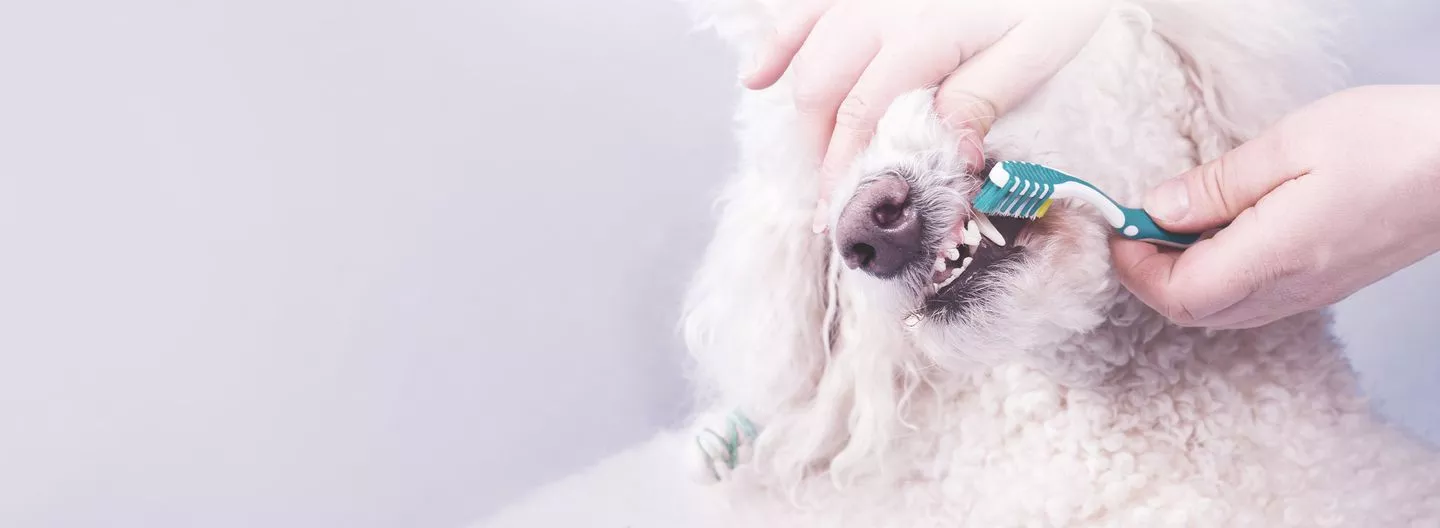


Dog teeth are also not immune to tartar and caries. That is why there are a few things to consider when it comes to dental care.
A dog's saliva contains minerals, which are deposited on the teeth together with food residues over time - this creates plaque. If this is not removed, a solid lime crust, so-called tartar, forms. This is where easily pathogenic bacteria can colonize and cause, for example, inflam mation of the gums (gingivitis). This inflammation can spread to the tooth bed (periodontitis), causing the teeth to loosen or fail in the worst case.
If existing tartar is not treated by a veterinarian, the bacteria can also spread in the organism and affect dog health: heart, kidney and liver diseases can be favored.
To keep your dog's teeth and gums healthy, brushing your teeth daily is recommended. You can use finger toothbrushes to get used to it, later soft to medium- hard toothbrushes are suitable for animals with nylon bristles. The brush head should correspond to the size of your dog's teeth. Unlike humans, it is important that the toothpaste does not foam and is not fluoridated. If possible, choose a taste that your dog likes - this often makes dental care easier for the dog. The teeth should always be brushed from the gum line and the brush head should be at a 45 degree angle to the tooth in order to reach the gum pockets. If you can't get your dog used to brushing their teeth,
Nutrition is also an important building block to prevent tartar. Buffalo skin bones, for example, not only serve as a species-appropriate pastime, but also help to remove the plaque when chewing. In addition, you should not only offer wet food if possible, since dry food also helps to rub off the plaque. The size of the croquettes is crucial: if they are too small, the food is hardly chewed and the positive effect is absent, In addition to the type of feed, it is also important to choose a variety that does not contain sugar.
In addition to special chewing bones for dental care, you can spoil your dog with tooth cleaning toys. For example, tooth cleaning balls are great for cleaning your dog's teeth in a playful way.
The annual general check-up, which you will probably ink directly to the vaccination date, is a good way to have your dog's teeth checked by the veterinarian. If necessary, the bit can be professionally cleaned. The tartar and finer deposits are removed and the teeth are then polished.
At home, you should also check your dog's teeth at regular intervals. In the event of abnormalities such as heavy deposits, bleeding gums, extreme mouth odor or refusal to eat, or painful mouth, the teeth should be examined by a veterinarian. Through the home controls, your dog will also get used to the appropriate steps, so that the examination at the veterinarian can be much less stressful. Start with short stages and increase slowly, because the rule is: practice makes perfect.